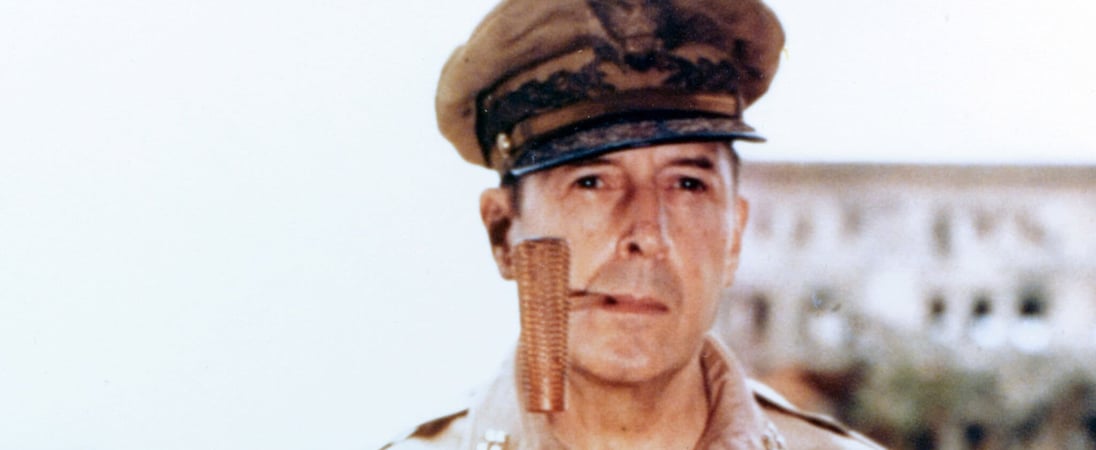
Douglas MacArthur's birthday
Douglas MacArthur, born on January 26, 1880, was a significant figure in American military history. His career spanned several major conflicts, including World Wars I and II and the Korean War. Known for his bold leadership and distinct personality, MacArthur played a crucial role in the Pacific field during World War II.
His impact on military strategy and his controversial dismissal during the Korean War made him a prominent and debated figure in history. Despite his challenges, MacArthur remains an iconic symbol of American military prowess.
Early Years of Douglas MacArthur
Douglas MacArthur’s childhood was shaped by a strong military influence. Born on January 26, 1880, in Little Rock, Arkansas, he was the son of Arthur MacArthur Jr., a notable Army officer. This background instilled in Douglas a deep respect for military life from a young age. Growing up, he moved frequently due to his father’s assignments, exposing him to various American regions and cultures.
MacArthur attended the West Texas Military Academy for his education, where he excelled academically and in leadership. His achievements there set the foundation for his future military career. In 1899, he entered the United States Military Academy at West Point. Here, Douglas stood out for his academic skills, finishing top of his class in 1903. His time at West Point was marked by a strong commitment to discipline and excellence, which later defined his military service.
MacArthur’s early years were a blend of constant movement and rigorous training. These experiences shaped his worldview and prepared him for the challenges of military leadership. His upbringing in a military family and his outstanding education at West Point were crucial in molding him into one of America’s most renowned military figures.
Triumphs and Achievements of Douglas MacArthur
Significant achievements and notable successes mark Douglas MacArthur’s military career. After graduating from West Point, he quickly climbed the ranks, demonstrating exceptional leadership skills. During World War I, he served with distinction, earning several decorations for bravery, including the Distinguished Service Cross and the Silver Star.
In the interwar period, MacArthur continued to rise. He became the Army’s youngest major general in 1925. His innovative approach to military training and organization set new standards in the U.S. Army. Later, as the Army Chief of Staff, he modernized the military, preparing it for the upcoming World War II challenges.
World War II was MacArthur’s defining moment. As commander of Allied forces in the Pacific, he masterminded key victories in the Philippines and New Guinea. His famous promise, “I shall return,” symbolized hope and resilience during the war’s darkest days. True to his word, MacArthur returned to the Philippines in 1944, leading the liberation efforts against Japanese occupation.
Post-World War II, MacArthur oversaw the occupation of Japan. His leadership during this period was crucial in transforming Japan into a democratic and peaceful nation. This period is one of his most significant contributions to global peace.
During the Korean War, MacArthur commanded United Nations forces. Initially, he achieved significant victories, pushing back North Korean forces. However, his controversial decisions and public disagreements with President Truman led to his dismissal in 1951. MacArthur’s military career left a permanent mark on American and world history despite this setback. His strategic acumen and leadership skills remain subjects of study and admiration.
Interesting Facts About Douglas MacArthur
West Point Genius: Douglas MacArthur graduated first in his class at West Point in 1903 with an impressive average of 98.14%, one of the highest in the academy’s history.
World War I Hero: In WWI, MacArthur was promoted to brigadier general and was one of the most decorated American soldiers, earning seven Silver Stars and two Distinguished Service Crosses.
Innovative Reformer: As Army Chief of Staff in the 1930s, he implemented modernization programs that significantly transformed the U.S. Army, preparing it for World War II.
Famous Vow: His promise, “I shall return,” made when leaving the Philippines in 1942, became an iconic symbol of determination and resilience.
Presidential Ambitions: He considered running for President of the United States in 1952 but ultimately decided against it.
Dramatic Farewell: His farewell address to Congress in 1951, after being relieved of his command in Korea, included the famous line, “Old soldiers never die; they just fade away.”
Also on this date...
National Green Juice Day
Sipping a refreshing blend of leafy greens and zesty fruits is like getting a vitamin-packed energy boost — the perfect way to start the day!
National Spouses Day
Show appreciation for your life partner by reminiscing about your favorite memories, planning a getaway or trying a new activity together.
National Peanut Brittle Day
A crunchy, delicious treat that's perfect for satisfying a sweet tooth. With its caramelized taste and nutty texture, it's hard to resist!
World Leprosy Day
Unveiling insights into an historical ailment, fostering understanding and empathy for a condition often misunderstood.




